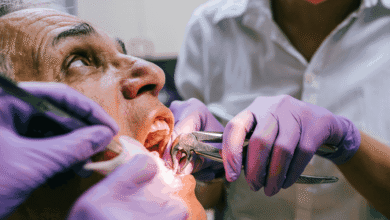Low Pregnenolone Symptoms: Causes and Treatment

Pregnenolone is a natural steroid hormone produced in the body, primarily in the adrenal gland. It is a precursor to several other hormones, including progesterone, estrogen, testosterone, and cortisol. Pregnenolone plays a vital role in the body’s functioning, and its levels can impact overall health and well-being. Low pregnenolone levels can cause a wide range of symptoms, which can be difficult to identify as they can often be attributed to other medical conditions. This article explores low pregnenolone symptoms, causes, and treatment.
What Causes Low Pregnenolone symptoms?
Pregnenolone is a crucial precursor to several hormones, including progesterone, testosterone, estrogen, and cortisol. Pregnenolone also acts as a neurosteroid and is involved in various cognitive and mood functions. The normal reference range for pregnenolone ms levels is 22 to 237 ng/dL for adults. Several factors can contribute to low pregnenolone levels.
Low Pregnenolone Causes
The most common causes include:
- Age: As individuals age, their natural production of pregnenolone declines.
- Chronic Stress: High levels of chronic stress can deplete pregnenolone levels by increasing cortisol production.
- Nutritional Deficiencies: A diet lacking in certain essential vitamins and minerals, including vitamin C, vitamin B5, magnesium, and zinc, can impact pregnenolone production.
- Genetics: Some individuals may have genetic mutations that impact pregnenolone synthesis.
- Medications: Certain medications, including hormonal contraceptives, can interfere with pregnenolone production.
Low Pregnenolone Symptoms
Low pregnenolone levels can cause a wide range of symptoms, many of which can be similar to those caused by other medical conditions. The most common symptoms of low pregnenolone levels include:
- Fatigue: Individuals with low pregnenolone levels may experience chronic fatigue and a lack of energy.
- Brain Fog: Low pregnenolone levels can cause brain fog, making it difficult to concentrate or remember things.
- Depression: Low pregnenolone levels have been linked to depression and other mood disorders.
- Anxiety: Individuals with low pregnenolone levels may experience anxiety and heightened stress levels.
- Insomnia: Low pregnenolone levels can impact sleep quality and lead to insomnia.
- Reduced Libido: Low pregnenolone levels have been linked to a reduced sex drive.
- Weight Gain: Low pregnenolone levels can contribute to weight gain and difficulty losing weight.
- Hair Loss: Low pregnenolone levels can cause hair loss.
Treatment for Low Pregnenolone Levels
If an individual suspect that they have low pregnenolone levels to normal levels, they should speak with their healthcare provider. The healthcare provider may perform a blood test to determine the individual’s pregnenolone levels.
Lifestyle Changes
Sometimes lifestyle changes alone can help increase pregnenolone levels to a normal level, particularly if the individual is experiencing mild to moderate symptoms. Lifestyle changes that can increase pregnenolone levels include:
- Reducing Stress: Managing stress levels through meditation, yoga, or other relaxation techniques can help increase pregnenolone levels.
- Eating a Nutritious Diet: A diet rich in vitamins and minerals, including vitamin C, vitamin B5, magnesium, and zinc, can boost pregnenolone production.
- Getting Enough Sleep: Getting enough sleep can help boost pregnenolone levels and improve overall health and well-being.
- Exercise: Exercise can help reduce stress levels and boost pregnenolone production.
Pregnenolone Suplementation
If lifestyle changes alone do not help increase pregnenolone levels to normal, healthcare providers may recommend supplementing with pregnenolone. It is important to speak with a healthcare provider before starting any supplement regimen, as pregnenolone supplementation can interact with other medications and supplements and it can also lead to unintended high pregnenolone levels.
Pregnenolone supplements are available in various forms, including capsules, creams, and gels. The healthcare provider can recommend the appropriate dosage and form of supplementation based on the individual’s specific needs.
Hormone Replacement Therapy (HRT)
In some cases, healthcare providers may recommend hormone replacement therapy (HRT) to increase pregnenolone levels. HRT involves replacing the body’s natural hormones with synthetic hormones to balance hormone levels. HRT can help alleviate the symptoms of low pregnenolone levels, but it is not without risks and side effects. It is important to discuss the potential risks and benefits of HRT with a healthcare provider before starting treatment.
Conclusion
Low pregnenolone levels can cause a wide range of symptoms, many of which can be difficult to identify as they can often be attributed to other medical conditions. The most common causes of low pregnenolone levels include age, chronic stress, nutritional deficiencies, genetics, and medications. Symptoms of low pregnenolone levels can include fatigue, brain fog, depression, anxiety, insomnia, reduced libido, weight gain, and hair loss.
Lifestyle changes such as stress reduction, a nutritious diet, getting enough sleep, and exercise can help increase pregnenolone levels. Healthcare providers may also recommend supplementing with pregnenolone or hormone replacement therapy (HRT) to increase pregnenolone levels in more severe cases. By working with a healthcare provider and making necessary lifestyle changes, individuals can improve their overall health and well-being.
Frequently Asked Questions (FAQs)
The most common symptoms of low pregnenolone levels include fatigue, brain fog, depression, anxiety, insomnia, reduced libido, weight gain, and hair loss.
Yes, lifestyle changes such as stress reduction, a nutritious diet, getting enough sleep, and exercise can help increase pregnenolone levels, particularly in cases of mild to moderate symptoms.
Yes, low pregnenolone levels have been linked to anxiety and depression.
Pregnenolone is a hormone produced in the body that can potentially improve cognitive function, mood, memory, and energy levels. It may also have anti-inflammatory and neuroprotective effects.
Pregnenolone supplementation can be safe when used appropriately and under the guidance of a healthcare provider. However, it can interact with other medications and supplements, so it is important to speak with a healthcare provider before starting any supplement regimen.











